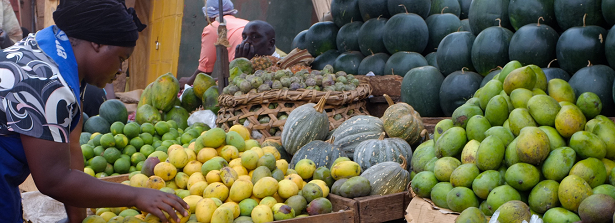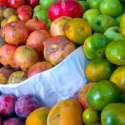How to make agricultural programmes work for nutrition

“Nutrition-sensitive agriculture interventions have due potential to improve diets.” This is one of the takeaways from a recent expert meeting on how to make agricultural programs work for nutrition, and which approaches to use to measure progress. The meeting took place in The Hague on May 17, 2018, and was organized by the Netherlands Working Group on international Nutrition (NWGN) in collaboration with the Food & Business Knowledge Platform (F&BKP). The preliminary findings of the meeting are available here.
Making agri-food systems more nutrition-sensitive
There is growing commitment at global level to improve food and nutrition security. Alongside nutrition specific interventions special efforts are made to make agri-food systems more nutrition-sensitive. Although consensus exists on pathways through which agriculture may influence nutrition-related outcomes, empirical evidence on agriculture’s contribution to nutrition and how it can be enhanced is still weak. Therefore there is growing demand for evidence on what policies and programs work best, how and at what cost. Good quality measurement tools are key to collect data on output, outreach, outcome and impact levels, and to generate reliable evidence on what works well.
The workshop of May 17 served to share knowledge on the latest empirical evidence for impact of nutrition-sensitive agriculture interventions on nutrition, as well as related pathways and contextual factors. Subsequently the focus was on how to best measure the contributions of nutrition-sensitive agriculture interventions on nutrition outcomes with a combination of improved metrics.
Dr. Marie Ruel, Director of the Poverty, Health and Nutrition Division of the International Food Policy Research Institute (IFPRI) presented the evidence from a recently published review on nutrition-sensitive agriculture interventions for nutrition. That was followed by presentations and group discussions of case studies on experiences and lessons learned with measuring the contribution of NSA to nutrition outcomes by Dutch actors working in food and nutrition security. This included a presentation by Dr Hazel Malapit (IFPRI) on the latest innovations of adaptions for the Women’s Empowerment in Agriculture Index (WEAI) being used to measure links between women empowerment and nutrition within NSA.
Brochure: insights from experiences Netherlands Working group for international Nutrition
During the meeting the NWGN presented the brochure “Measuring nutrition effects of food security and agriculture programs – Sharing approaches, metrics and practices”. This brochure presented practical experiences of ICCO, Royal Tropical Institute (KIT) and SNV, that had been discussed in an earlier meeting of the Working Group, and the common insights these had generated.
The about 70 workshop participants consisted of a range of experts from the Ministries of Foreign Affairs and Agriculture, Nature and Food Quality, as well as from public bodies such as RVO, from the private sector, NGOs and knowledge institutions, including but not limited to the members of the Netherlands Working Group on international Nutrition.
The lively discussion lead to several takeaways, both for policy makers and practitioners, and also to ideas for next steps. These are summarized in this document which presents the preliminary findings. The full findings will be shared soon.
- Please download the NWGN brochure “Measuring nutrition effects of food security and agriculture programs – Sharing approaches, metrics and practices“.
- Please follow this link for the background information on the NWGN expert meeting.
About NWGN
The Netherlands Working Group on international Nutrition (NWGN) is a network of NGOs, knowledge institutes, the Dutch Ministry of Foreign Affairs and private sector organizations. The NWGN’s mission is to promote inclusion of nutrition specific as well as nutrition-sensitive approaches in development policies and strategies of Dutch stakeholders. The members of the NWGN support the vision of The Global Nutrition Report (2017) stating that “improvements in human nutrition represent both a maker and a marker of sustainable development”. The NWGN believes that improving nutrition contributes to the achievement of all SDGs in a direct or indirect way, while vice versa the achievement of many of the SDGs contributes to improving nutrition.






